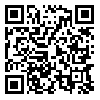Sun, Feb 22, 2026
[Archive]
Volume 2, Issue 1 (1-2010)
IJDO 2010, 2(1): 20-26 |
Back to browse issues page
Download citation:
BibTeX | RIS | EndNote | Medlars | ProCite | Reference Manager | RefWorks
Send citation to:



BibTeX | RIS | EndNote | Medlars | ProCite | Reference Manager | RefWorks
Send citation to:
Afkhami-Ardekani M, Rashidi M, Shojaoddiny A. Effect of Thyroid Dysfunction on Metabolic Response in Type 2 Diabetic Patients. IJDO 2010; 2 (1) :20-26
URL: http://ijdo.ssu.ac.ir/article-1-22-en.html
URL: http://ijdo.ssu.ac.ir/article-1-22-en.html
Abstract: (10717 Views)
OBJECTIVE: We aimed to evaluate association between thyroid dysfunction, and lipid profile and glycated hemoglobin in type 2 diabetic patients.
MATERIALS AND METHODS: This cross-sectional study was carried out in type 2 diabetic patients who referred to Yazd Diabetes Research Center. A total of 1200 type 2 diabetic patients who had thyroid dysfunction according to clinical examinations and laboratory results were chosen as case group and 1200 type 2 diabetic patients who were matched with case in age, sex and duration of diabetes and had no thyroid dysfunction confirmed by clinical and laboratory examination, were chosen as control group. In this study the following variables were measured: Glycosylated hemoglobin (HbA1c), lipid profiles [Total cholesterol (TC), low-density lipoprotein cholesterol (LDL-C), high-density lipoprotein cholesterol (HDL-C), and triglycerides (TG)].
RESULTS: There was a significant difference between HbA1c (8.9 ±1.99 vs. 7.1±1.02), TG (234.07 ± 88.69 vs. 205.89 ± 58.47), TC (209.56 ± 45.59 vs. 199.48 ± 41.55), LDL (125.05 ± 46.5 vs. 114.5 ± 45.42) and HDL (37.69 ± 16.78 vs. 43.79 ± 20.25) between two groups (P = 0.001). Moreover, a higher proportion of type 2 diabetic patients with thyroid dysfunction had elevated levels of TC (52.3% vs. 43.6%) (P = 0.001), LDL cholesterol (71.8% vs. 64.3%) (P = 0.001), HbA1c (83.8% vs. 35.9%) (P = 0.001) and TG (84.3% vs. 81.2%) (P = 0.02) compared with euthyroid group.
CONCLUSION: Our findings indicate that screening of thyroid dysfunction in type 2 diabetic patients is necessary because thyroid dysfunction can produce significant metabolic disturbances.
Type of Study: Research |
Subject:
General
Received: 2011/08/16 | Accepted: 2024/10/8 | Published: 2010/01/15
Received: 2011/08/16 | Accepted: 2024/10/8 | Published: 2010/01/15
| Rights and permissions | |
 |
This work is licensed under a Creative Commons Attribution-NonCommercial 4.0 International License. |





